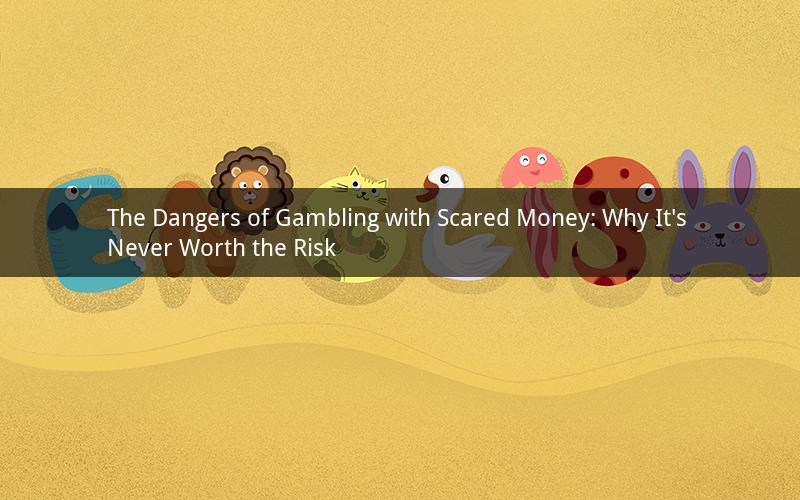
Introduction:
Gambling with scared money is a common yet dangerous practice that can lead to severe financial and emotional consequences. Scared money refers to money that you cannot afford to lose, whether it's funds designated for essential expenses, borrowed money, or money that you have saved for a specific purpose. This article explores the risks associated with gambling with scared money and why it's never worth the risk.
1. The Emotional Toll:
Gambling with scared money can take a significant emotional toll on individuals. When you bet money that you cannot afford to lose, the fear of losing it can lead to immense stress, anxiety, and even depression. The pressure to recoup your losses can create a negative cycle of gambling, where individuals continue to bet in the hope of recovering their money, only to lose more.
2. Financial Consequences:
Gambling with scared money can have severe financial consequences. If you lose the money, you may be unable to meet your financial obligations, such as paying rent, utilities, or bills. This can lead to late fees, increased debt, and even bankruptcy. Additionally, borrowing money to gamble can create a cycle of debt that is difficult to break.
3. The Importance of Budgeting:
One of the key reasons why gambling with scared money is dangerous is the lack of budgeting. When you allocate funds for specific purposes, such as saving for a home or paying for education, you are essentially planning for your future. Betting these funds on a gamble can disrupt your financial goals and plans, potentially setting you back years.
4. The Role of Addiction:
Gambling with scared money can also contribute to gambling addiction. When individuals bet money they cannot afford to lose, they may develop a sense of dependency on gambling as a means to cope with their financial and emotional stress. This can lead to a dangerous addiction that can be difficult to overcome.
5. Alternatives to Gamble with Scared Money:
Instead of gambling with scared money, there are healthier alternatives to manage financial stress and uncertainty. These include:
- Seeking professional financial advice to create a budget and plan for your financial goals.
- Exploring alternative income sources, such as part-time jobs or freelance work.
- Building an emergency fund to cover unexpected expenses.
- Seeking support from friends, family, or a professional therapist to address any underlying emotional issues.
Questions and Answers:
1. Q: What is scared money?
A: Scared money refers to money that you cannot afford to lose, whether it's funds designated for essential expenses, borrowed money, or money that you have saved for a specific purpose.
2. Q: Can gambling with scared money lead to addiction?
A: Yes, gambling with scared money can contribute to gambling addiction. When individuals bet money they cannot afford to lose, they may develop a sense of dependency on gambling as a means to cope with their financial and emotional stress.
3. Q: What are the financial consequences of gambling with scared money?
A: The financial consequences of gambling with scared money can be severe, including the inability to meet financial obligations, increased debt, and even bankruptcy.
4. Q: How can I avoid gambling with scared money?
A: To avoid gambling with scared money, it's important to create a budget, prioritize your financial goals, and seek professional financial advice if needed. Building an emergency fund and exploring alternative income sources can also help manage financial stress and uncertainty.
5. Q: What are some healthier alternatives to gambling with scared money?
A: Healthier alternatives to gambling with scared money include seeking professional financial advice, exploring alternative income sources, building an emergency fund, and seeking support from friends, family, or a professional therapist to address any underlying emotional issues.